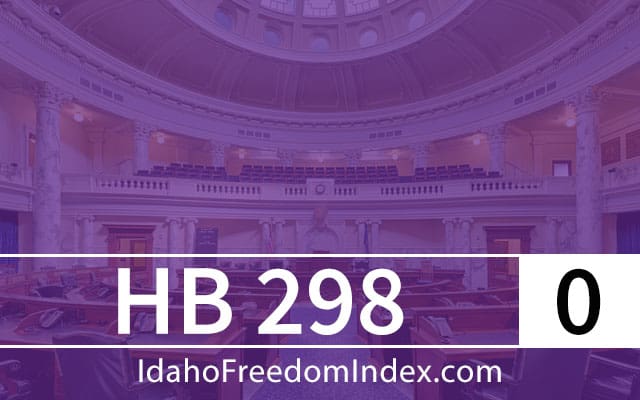


Bill description: HB 298 would remove the sales tax exemption hospitals receive on all purchases they make.
Rating: 0
Does it increase government redistribution of wealth? Examples include the use of tax policy or other incentives to reward specific interest groups, businesses, politicians, or government employees with special favors or perks; transfer payments; and hiring additional government employees. Conversely, does it decrease government redistribution of wealth?
Current state law exempts all nonprofit hospitals from paying any state sales or use taxes on purchases they make. The total value of this exemption well exceeds $30 million.
HB 298 would reduce the scope of this exemption. The exemption would be limited solely to critical access hospitals, which are hospitals in rural communities that are the only one available to residents. The fiscal note estimates that this would reduce the total estimated value of the exemption from $37.7 million in FY 21 to just $13.2 million. This legislation would direct the additional sales tax revenue received from hospital purchases to a fund dedicated to covering the costs associated with Medicaid expansion.
By reducing the total scope of the exemption, HB 298 would free up additional moneys to cover the general obligations of the state and to provide tax relief to Idahoans. When the state government offers exemptions such as this to interest groups, all other taxpayers end up paying an artificially inflated effective tax rate in the long term.
(+1)
Does it violate the principles of federalism by increasing federal authority, yielding to federal blandishments, or incorporating changeable federal laws into Idaho statutes or rules? Examples include citing federal code without noting as it is written on a certain date, using state resources to enforce federal law, and refusing to support and uphold the Tenth Amendment. Conversely, does it restore or uphold the principles of federalism?
HB 298 would grant the sales tax exemption to any hospital that has been designated as a critical access hospital by the federal government under 42 U.S.C. 1395x (mm).
By citing federal code, this legislation would allow the federal government to determine which hospitals will receive a sales tax exemption in the future. Currently, to qualify as a critical access hospital under the federal definition, a hospital must:
HB 298 would allow the secretary to define what it takes to be classified as a critical access hospital, effectively changing Idaho Code without any legislative oversight. Similarly, Congress could revise this definition to expand or reduce the scope of these hospitals, without the Idaho Legislature having any say.
(-1)


